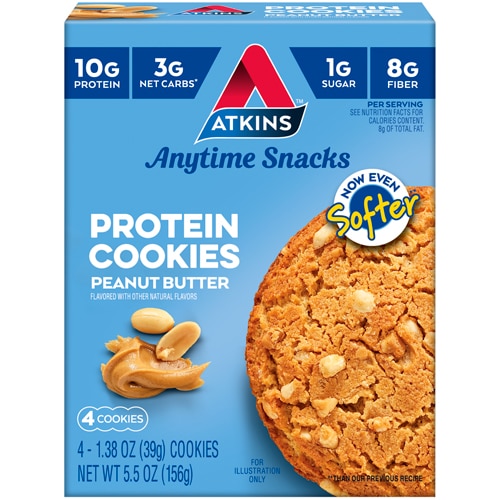[vc_row][vc_column][vc_column_text]With the
holidays swiftly approaching, many may be seeking out ways to dodge winter weight gain. This might be to look their most svelte for New Year’s Eve. For others, it may be to preserve their fitness regime.
Whatever the case may be, there’s another reason to strive for—and maintain—a healthy weight: It may play a direct role in your longevity.

This might not seem like sizzling-hot news. After all, we’ve known for decades that eating smartly, exercising frequently and sustaining your ideal weight is key to well-being. But a 2023 study, published in the
Journal of Gerontology,
sheds new light on the subject—and may provide even more of an incentive to pay close attention to that number on the scale.
The multi-institutional, large-scale study, which was led by researchers at the University of California San Diego, followed 54,437 women, all of whom were enrolled in the Women’s Health Initiative (WHI), a long-term study focused on pinpointing ways to dodge the primary causes of disabilities and death among older women, like breast cancer, osteoporosis and cardiovascular disease.
Researchers discovered that women who maintained their weight within a 5 percent range had a 1 to 1.2 times higher chance of achieving longevity. In fact, 30,647 women in the study—or 56 percent—lived to at least 90, an age experts call “exceptional longevity.”
Weight and longevity: A closer look
Your first thought may be that a decreased life span might be due to being overweight and obese. This may be true: Both can contribute to a host of serious (and sometimes fatal) health conditions, such as:
On the other side of the coin, hovering at too low of a weight, or losing weight unintentionally, may be indicative of an underlying health issue and
decreased longevity. It may also lead to malnutrition, anemia, compromised immune function, and osteoporosis, among other complications.
The answer to feeling your best—and ensuring you live life to the fullest—rests in achieving and preserving a weight that works for you.
How does a stable weight play into longevity?
First and foremost, a stable weight is often representative of a steady dietary pattern. This means a woman likely doesn’t go through extreme increases or decreases in their caloric intake—and we all know the negative effects of yo-yo dieting (or weight cycling), such as
an increase in body fat percentage, a slower metabolism,
cardiovascular stress and even an enhanced risk of life-threatening illnesses.
What’s more, a steady weight may suggest that a woman is obtaining the essential nutrients she needs, which boosts metabolic health. In turn, this may curb her vulnerability to chronic health conditions and uplevel her longevity.
Additionally, a stable weight may demonstrate that an individual leads an active lifestyle. Exercise in and of itself has been linked a range of life-extending benefits, including:
In sum? A stable weight is often illustrative of a healthy lifestyle.
How to maintain a healthy weight—now and as you age
One misconception is that the march of time is practically synonymous with weight gain, especially once a woman hits
menopause—a time characterized by drops in estrogen and progesterone that, coupled with aging, may
prompt metabolic changes.
And yet, there are dozens of simple and effective ways to not only ward off weight gain and detrimental weight loss but also increase your lifespan. Let’s look at 5 of the most valuable:
1. Assess where you stand
The body mass index
(BMI) has been used for decades to evaluate the health of one’s wellness according to the ratio of their height and number on the scale. Now, medical experts are starting to lean on a new metric: The body roundness index (BRI), an assessment that quite literally
tests one’s roundness.
This is key: it examines for “central obesity” and abdominal fat, both of which are associated with a heightened risk of hypertension, cardiovascular disease, and type 2 diabetes—all of which can hasten an early death. Ideally, experts suggest that your waist circumference should be
35 inches or less.
2. Exercise portion control
Since the 1980s,
restaurant portions have doubled in size, which has long stirred up concerns about health conditions that stem from obesity. Naturally, this changed
our perception of what constitutes an appropriate portion, even when we’re dining at home or running into the market for a quick snack.
Fortunately, restaurants around the country are now trimming their dishes in an effort that’s been dubbed “shrinkflation.” And while some eateries may be doing so for economic, environmental and demographic reasons, let it have a cascading effect on how
you view a proper portion.
You don’t necessarily need to weigh your food or pop precisely 13 tortilla chips on your plate. But you may want to zero in on your hunger and satiation: Both can tell you if you need more food, or ought to wrap up the second half of your dinner for tomorrow’s lunch.
3. Examine the quality of your diet
It can be all too easy to be swept into this diet or that, particularly given how heavily influenced our culture has become by social media fads and the diets they advertise.
But fad diets are just that: fads. Sure, some have actual merit; the Keto diet, for example, may be great for
jumpstarting weight loss, while a low-oxalate diet might be just right for someone with
kidney stones or
joint and soft tissue pain.
On the whole, however, restrictive diets are nearly impossible to sustain. This may lead to highs and lows in your weight, and take you farther away from extending your lifespan. Instead, peer at the
quality of your diet and ensure it brims with nutrient-dense foods, like:
And the more you can lean on nature for nutrition, the better: Research demonstrates that simply
swapping red meat and eggs for plant-based proteins may increase a woman’s longevity by 21 percent.
4. Prioritize sleep hygiene
You might associate better sleep with clearer, more radiant skin, an uptick in energy, and a brighter frame of mind. All of this is true, but restorative sleep also has a direct effect on both
weight and longevity.
Here’s how: inadequate sleep interrupts the production of ghrelin and leptin, two hormones that control hunger and appetite. In fact, a study out of the Mayo Clinic found that those who slept only four hours per night
ate an average of 35o calories more the next day. This can precipitate belly fat accumulation—and change that number on the scale.
Further, insufficient sleep can result in
increased blood sugar and blood pressure, but a
decrease in cognitive function.
To that end, honor your sleep schedule (hopefully, one that includes relaxing bedtime routines and seven to nine hours of rest), and treat it as a non-negotiable.
5. Embrace physical activities that you relish
Every woman’s body is unique—and their passions are just as distinct. Whether you love hiking or swimming, dancing or gardening, yin yoga or barre, weave it into your life as much as possible. Consider it your soulmate in the exercise realm, and one of the keys to a life well, and beautifully, lived.[/vc_column_text][/vc_column][/vc_row][vc_row][vc_column][vc_text_separator title="Featured Products" border_width="2"][vc_row_inner equal_height="yes" content_placement="middle" gap="35"][vc_column_inner width="1/3"][vc_single_image image="180080" img_size="full" alignment="center" onclick="custom_link" img_link_target="_blank" css=".vc_custom_1732377990612{padding-right: 7% !important;padding-left: 7% !important;}" link="https://www.vitacost.com/atkins-rtd-shake"][/vc_column_inner][vc_column_inner width="1/3"][vc_single_image image="180078" img_size="full" alignment="center" onclick="custom_link" img_link_target="_blank" css=".vc_custom_1732378018261{padding-right: 7% !important;padding-left: 7% !important;}" link="https://www.vitacost.com/nouri-weight-health-probiotic-and-omega"][/vc_column_inner][vc_column_inner width="1/3"][vc_single_image image="180079" img_size="full" alignment="center" onclick="custom_link" img_link_target="_blank" css=".vc_custom_1732378036000{padding-right: 7% !important;padding-left: 7% !important;}" link="https://www.vitacost.com/liddell-homeopathic-weight-loss-xl"][/vc_column_inner][/vc_row_inner][/vc_column][/vc_row]
 This might not seem like sizzling-hot news. After all, we’ve known for decades that eating smartly, exercising frequently and sustaining your ideal weight is key to well-being. But a 2023 study, published in the Journal of Gerontology, sheds new light on the subject—and may provide even more of an incentive to pay close attention to that number on the scale.
The multi-institutional, large-scale study, which was led by researchers at the University of California San Diego, followed 54,437 women, all of whom were enrolled in the Women’s Health Initiative (WHI), a long-term study focused on pinpointing ways to dodge the primary causes of disabilities and death among older women, like breast cancer, osteoporosis and cardiovascular disease.
Researchers discovered that women who maintained their weight within a 5 percent range had a 1 to 1.2 times higher chance of achieving longevity. In fact, 30,647 women in the study—or 56 percent—lived to at least 90, an age experts call “exceptional longevity.”
This might not seem like sizzling-hot news. After all, we’ve known for decades that eating smartly, exercising frequently and sustaining your ideal weight is key to well-being. But a 2023 study, published in the Journal of Gerontology, sheds new light on the subject—and may provide even more of an incentive to pay close attention to that number on the scale.
The multi-institutional, large-scale study, which was led by researchers at the University of California San Diego, followed 54,437 women, all of whom were enrolled in the Women’s Health Initiative (WHI), a long-term study focused on pinpointing ways to dodge the primary causes of disabilities and death among older women, like breast cancer, osteoporosis and cardiovascular disease.
Researchers discovered that women who maintained their weight within a 5 percent range had a 1 to 1.2 times higher chance of achieving longevity. In fact, 30,647 women in the study—or 56 percent—lived to at least 90, an age experts call “exceptional longevity.”



